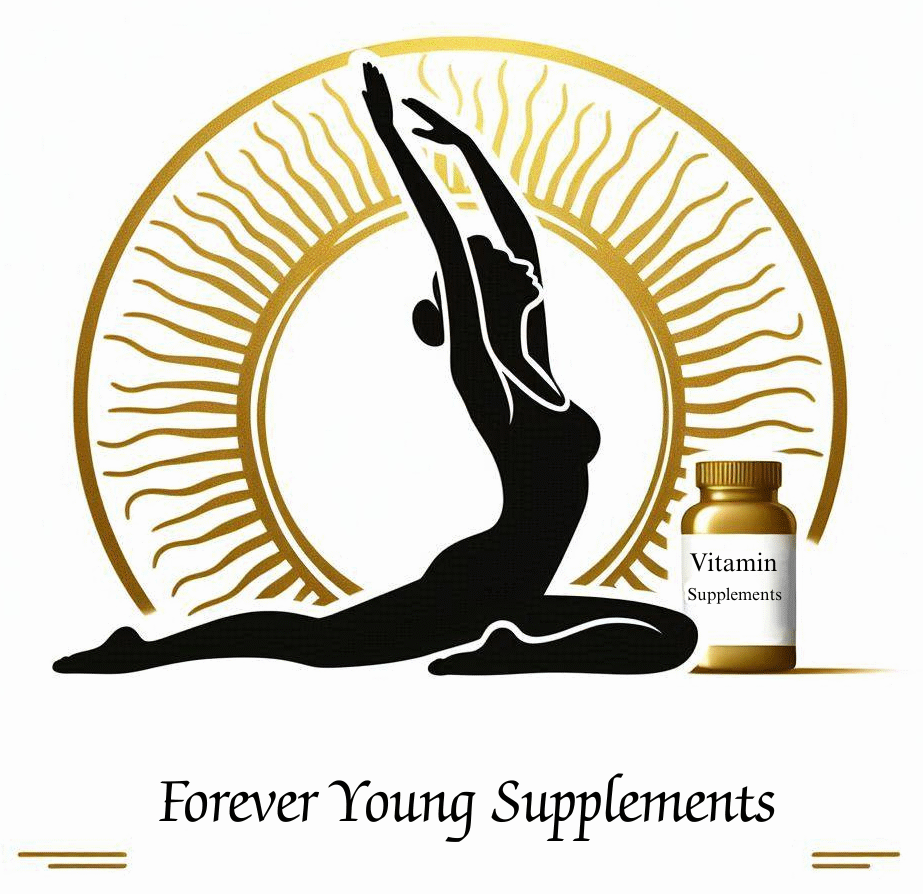Aging is inevitable, but how we age can vary greatly from person to person. Optimal aging is not just about adding years to our life; it’s about adding life to our years. This is where supplements come into play. While a balanced diet is crucial, modern lifestyles often lead to nutritional gaps. Supplements offer a way to bridge these gaps, supporting our bodily functions and helping maintain vitality as we grow older.
But why exactly consider supplements on your aging journey? The truth is, our bodies change with time. Our nutritional needs evolve, and what once worked in our youth may not deliver the same outcome anymore. Supplements specifically tailored for aging can help boost energy levels, improve mood, and even sharpen your cognitive functions.
Science backs this up. Numerous studies spotlight certain nutrients and compounds that may help slow down the aging process. These scientific findings don’t just promise extended life spans; they suggest improved quality of life.

So, how do you choose the right supplements amidst the multitude available? Understanding their role in longevity and health is the first stepping stone.
Identifying the Best Supplements for Aging Gracefully
Choosing the right supplement can feel like wandering through a maze. You want what’s best, but the choices can be overwhelming. A good starting point is understanding the most researched and highly recommended supplements for aging. Not only do they support our body’s natural functions, but they also help stave off some of the more common age related issues.
Omega-3 fatty acids top the list. Known for their anti-inflammatory properties, these fatty acids are crucial in maintaining heart health. They may even give a boost to brain functions and joint health. Whether through fish oil or algae-based supplements, Omega-3 can be a key player in your wellness routine.

Vitamin D is another heavy hitter. As we age, our skin’s ability to synthesize Vitamin D from sunlight decreases. This vitamin is essential for bone health, and it plays a big role in supporting brain function and mood regulation. Supplementing with Vitamin D can be especially beneficial for those who spend limited time outdoors or live in areas with long winters.
Antioxidants like Vitamin C and E help fight off free radicals, which can accelerate aging. They support the immune system and may even improve skin health, reducing signs of aging such as wrinkles.
Understanding these benefits isn’t just about picking a supplement off the shelf; it’s about recognizing their potential impact on cognitive function, bone health, and heart health. Keeping informed helps make decisions that align with personal health goals.
Tailoring Supplements to Your Age and Personal Needs
Our nutritional demands aren’t static, and as we journey through different stages of life, these needs adjust and evolve. Recognizing this shift is key to ensuring you’re taking the right supplements for your age. By understanding these changes, you can select supplements that complement not just your age but also your personal health journey.
As we age, our bodies may become less efficient in absorbing certain nutrients, leading to potential deficiencies. This can be influenced by lifestyle factors too, such as diet, activity level, and even geographical location. Ensuring your supplement regime reflects these factors is crucial. For instance, a middle-aged adult might focus on supplements that boost energy and metabolism, while someone older might prioritize bone strength and cognitive health.
It’s all about personalization. Say you’re experiencing joint stiffness; glucosamine might be worth exploring. If energy dips are frequent, B vitamins could lend a hand. The idea is to pinpoint what your body signals and respond with well-chosen supplements.
Don’t forget to consider any pre-existing health conditions or medications that could influence your nutrient needs. Sometimes going solo in this journey isn’t enough. Guidance from health professionals can shed light on what supplements align best with your unique health profile, ensuring you’re getting what your body truly benefits from.
Top Recommendations: Supplements for Older Adults
As you step into the golden years, the focus on certain nutrients becomes even more critical. Your body has different priorities, and catering to these through supplements can make a huge difference in overall wellbeing. Older adults, in particular, should look at specific supplements to help maintain health and vitality.
Calcium is often at the forefront when discussing age-related supplements. It’s essential for maintaining strong bones and preventing conditions like osteoporosis. As bone density tends to decrease with age, supplementing with calcium can offer significant support. Pairing it with Vitamin D further enhances its absorption and effectiveness.
Magnesium is another powerhouse for older adults. It plays a big role in many bodily functions, including supporting heart health, reducing blood pressure, and even aiding sleep patterns. With age, magnesium levels can dwindle, making supplementation a smart choice.
Coenzyme Q10, or CoQ10, is a naturally occurring antioxidant in the body that helps generate energy in cells. However, levels of CoQ10 can decrease as the years add up. Supplementing can potentially support heart health and energy levels, all vital for maintaining an active and engaging lifestyle.
Choosing these supplements wisely is important. Quality varies greatly across products, so checking for third-party testing and reviews can help ensure you’re getting a reliable, effective product. It helps to always be a smart consumer, especially when your health is on the line.
Strategizing the Best Combination of Supplements for Comprehensive Health
Mixing and matching supplements can be like putting together puzzle pieces for your health. When done right, these combinations can enhance their benefits, creating a synergy that maximizes their potential. Simply taking individual supplements doesn’t always cut it; sometimes, the magic happens when they work together.
Take, for instance, Calcium and Vitamin D. By pairing these, you boost Calcium’s absorption significantly, making it more effective in maintaining bone health. Similarly, Omega-3 fatty acids work remarkably well with antioxidants. Together, they may better support heart health and reduce inflammation, working in tandem to cover more health bases.
Another winning combo often includes Vitamin B12 and Folate. While each plays a unique role in cellular health and energy production, together they provide comprehensive support, especially crucial for cognitive functions.
But how do you strategize these combinations? It starts with understanding your health goals. Are you aiming for better energy levels, joint support, or cognitive sharpness? Knowing this guides which combinations suit you best. Always loop in your healthcare provider when experimenting with these combinations, as they can ensure no adverse interactions with medications or other health conditions.
Real-life success stories abound with these strategies. People seeing improvements in energy, mood, and overall wellness from well-planned supplement combinations reinforce the positive impact this approach can have.
Choosing and Maintaining the Right Supplement Routine
Creating a supplement regimen is only half the battle—maintaining it requires thoughtful consideration and a bit of savvy. The supplement world can be a wild west, packed with choices that can feel overwhelming. Having a clear strategy can prevent you from wandering aimlessly down the supplement aisle.

First, focus on quality over quantity. Not every supplement is made equal, so checking for labels that boast certifications from reputable third parties like NSF or USP is a must. These endorsements mean you’re getting a product that’s been rigorously tested for quality and safety.
Consistency is key to any supplement routine. Whether it’s setting a calendar reminder or keeping your supplements somewhere you’ll see them every day, building a habit can ensure you’re reaping the full benefits. Missed doses can diminish their effectiveness, so find a system that helps you stick with it.
Consulting with a healthcare professional before making any changes is critical. They can offer insights tailored to your health status, ensuring there’s no unexpected interaction with existing medications. Armed with professional advice, you can feel confident in your supplement choices.
Finally, stay informed. The field of health and wellness is ever-changing, with new research influencing old assumptions. Keeping abreast of new studies and recommendations can help you tweak your routine to better meet your needs over time.
Remember, the goal of any supplement plan should be to support your lifestyle and health goals, not overhaul your routine entirely. When approached thoughtfully, your supplement regimen can become a solid ally in your journey to optimal aging.
Frequently Asked Questions
What are the best supplements to support healthy aging?
Omega-3 fatty acids, Vitamin D, antioxidants (like Vitamins C and E), magnesium, calcium, and CoQ10 are among the top supplements recommended for supporting heart health, brain function, bone density, and overall vitality as we age.
Can combining supplements really improve their effectiveness?
Yes, combining certain supplements can enhance their benefits. For example, Vitamin D improves calcium absorption, and Omega-3s paired with antioxidants can better support heart and immune health. Always consult with a healthcare provider before starting any combination.
How do I choose the right supplements for my age and health needs?
Selecting the right supplements depends on factors like age, lifestyle, diet, existing health conditions, and specific goals (e.g., energy, joint support, cognitive health). A personalized approach, guided by a healthcare professional, ensures you’re meeting your body’s unique needs.


I really appreciated this article—there’s so much valuable information here that I hadn’t come across before. I didn’t realize how effective certain supplements could be, especially for people who might not be able to maintain a regular exercise routine. This article offers great insight into other ways to support healthy aging.
I also liked how the information was clearly researched and backed by trusted sources—it makes a big difference when advice comes from a reliable place. This guide is especially helpful for anyone who’s looking to age well and stay energized, even without making drastic lifestyle changes.
Thanks for putting this together! It definitely gave me a better understanding of what to consider and where to start.
Are there safe supplement options for people managing chronic conditions like diabetes or high blood pressure?
Thank you so much for your thoughtful feedback. I am truly glad to hear the article provided valuable insights and helped deepen your understanding of how supplements can support healthy aging, especially for those who may face limitations in maintaining a regular exercise routine. Where possible I would still advocate including some form of excercise in your daily routine even if it is taking a walk in your neighbourhood.
Your question about safe supplement options for individuals managing chronic conditions such as diabetes or high blood pressure is a very important one. The good news is that there are supplements that may be both beneficial and safe for individuals with these conditions—when used under proper medical guidance
For those managing diabetes, some commonly studied supplements include:
Alpha-lipoic acid (ALA) – known for its antioxidant properties and potential to support nerve health and insulin sensitivity.Magnesium – often low in people with diabetes and essential for glucose metabolism.Chromium – may help improve insulin action and glucose control in some individuals.
For high blood pressure, these may be helpful:
Coenzyme Q10 (CoQ10) – has been shown in some studies to help lower blood pressure by supporting heart function and energy production.Omega-3 fatty acids – well-known for their cardiovascular benefits, including reducing inflammation and potentially lowering blood pressure.Magnesium and potassium – both play a key role in blood pressure regulation, especially when dietary intake is low.
However, it is essential to emphasize that supplement choices should be individualized. Certain supplements can interact with medications or have contraindications based on personal health history. For example, people on blood thinners need to be cautious with high-dose Omega-3s or Vitamin E.
The best approach is to consult with your medical practitioner, one who is familiar with both your medical history and supplement use. They can help create a personalized plan that safely complements any existing treatments.
Thanks again for reading and engaging with the article. Your question is a great reminder of how important it is to tailor health strategies to individual needs.
This article provides a well-rounded and informative look into how different supplement combinations can support optimal aging, especially by targeting key areas like joint health, brain function, and immune support. I appreciate how it explains not just what to take, but why certain nutrients work better together—like pairing vitamin D with calcium or omega-3s with antioxidants. It’s a helpful guide for anyone aiming to build a smarter, more effective supplement routine as they age.
Thank you for your thoughtful and encouraging feedback. I am glad to hear that the article resonated with you and that the explanations around supplement synergies added value to your understanding. My goal was to provide not just a list of supplements, but also the rationale behind their use and combinations, especially in the context of improving effectiveness and aging well. It is rewarding to know that the information came across as both practical and insightful. I appreciate you taking the time to share your thoughts, and I hope it serves as a useful guide for those seeking to create a personalized and effective supplement routine.